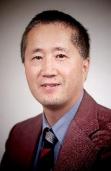 中国矿业大学-学术报告
中国矿业大学-学术报告
报告题目: Consensus and Formation Control for Multi-agent Systems
报 告 人: Peng Shi
报告时间: 2022 年 10 月 17 日 (周一) 上午 8:00
报告形式: 腾讯会议
会议 ID: 997-208-544
主办单位: 信息与控制工程学院
报告摘要:
The key features of Multi-agent Systems (MAS) are communication, coordination, and collaboration, by which the agents can achieve a common (and possibly difficult) goal in a more effective and efficient way. Three main topics within the realm of MAS are consensus, flocking and formation control. Cooperating processes often require agents to reach a consensus, which is the fundamental problem in MAS. Flocking (or swarming) is a self-organizing behavior originated from small-size animals with lower intelligence, which enables the emergence of swarm intelligence to improve the whole system survivability and competitiveness. Formation control generally aims to drive the agents to achieve a desired formation, scalable and/or changeable. In this talk, modeling analysis and design of a variety of distributed schemes for consensus and formation control are introduced. Simulations and experimental examples are provided to demonstrate the potential of the proposed new design techniques.
报告人简介:
Peng Shi received the PhD degree in Electrical Engineering from the University of Newcastle, Australia, the PhD degree in Mathematics from the University of South Australia, the Doctor of Science degree from the University of Glamorgan, UK, and the Doctor of Engineering degree from the University of Adelaide, Australia. He is now a Professor at the School of Electrical and Electronic Engineering, and the Director of Advanced Unmanned Systems Laboratory, at the University of Adelaide, Australia. His research interests include systems and control theory and applications to autonomous
and robotic systems, cyber-physical systems, and multi-agent systems. He has received many awards and recognitions, including the MA Sargent Medal Award from the Engineers Australia in 2022, and the Lifetime Leader Board acknowledgement from THE AUSTRALIAN from 2019-2021. Currently he serves as the Editor-in-Chief of IEEE Transactions on Cybernetics, and senior editorial roles in some journals, including the Co-Editor of Australian Journal of Electrical and Electronics Engineering, and a Senior Editor of IEEE Access. His professional services also include as the President of the International Academy for Systems and Cybernetic Sciences, the Vice President of IEEE SMC Society, and IEEE Distinguished Lecturer. He is a Fellow of IEEE, IET, IEAust and CAA, a Member of the Academy of Europe, and an Honorary Member of the Romanian Academy of Scientists.